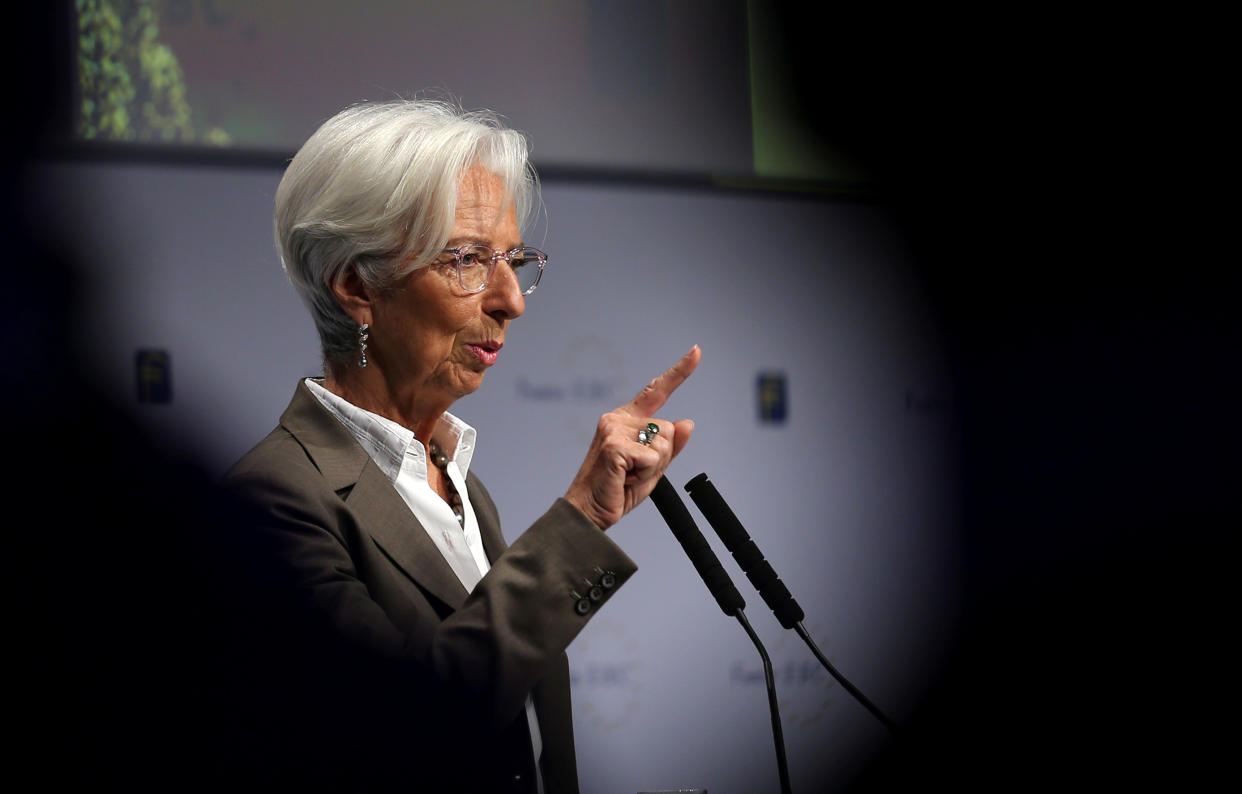Lagarde states the obvious: Eurozone governments need to spend more

No one will have been surprised by the theme of Friday’s speech by Christine Lagarde, the newly installed president of the European Central Bank. But eurozone governments will certainly take heed of her decision to focus almost entirely on the need for greater public spending.
Traditionally, ECB presidents talk about monetary policy, leaving elected leaders to manage their own economies and how to spend the cash in their coffers. But the ECB increasingly feels as if the weight of the eurozone economy rests solely on its shoulders.
The central bank, Lagarde said, would of course “continue to support the economy and respond to future risks” but she stressed that monetary policy “cannot and should not be the only game in town”.
Lagarde is singing a similar tune to that of her predecessor, Mario Draghi.
With inflation and economic growth lagging in the eurozone, Draghi used the final months of his presidency to try and convince national governments to stimulate their economies by spending more.
“All countries should intensify their efforts to achieve a more growth-friendly composition of public finances,” Draghi said after his final meeting as president.
Lagarde, however, has stepped up the efforts. On Friday, she told a banking conference in Frankfurt that it was “clear that monetary policy could achieve its goal faster and with fewer side effects if other policies were supporting growth alongside it”.
The ECB in September unveiled a sweeping stimulus package designed to boost the eurozone economy, including by restarting its controversial asset-purchasing programme.
Over the past several years — and in the absence of the action needed by governments — the ECB has been forced to deploy never-before-used monetary policy tools, such as negative interest rates and cheap long-term loans to banks.
Citing TS Eliot’s “every moment is a fresh beginning”, Lagarde said that growing trade conflicts opened up an opportunity for Europe to forge a new path.
But she also said that more spending in aggregate was not enough — and that governments needed to make investment decisions wisely.
“While investment needs are of course country-specific, there is today a cross-cutting case for investment in a common future that is more productive, more digital and greener,” she said, noting that public investment in the eurozone is still “way below” its pre-crisis levels.
“We have a unique possibility to respond to a changing and challenging world by investing in our future, strengthening our common institutions and empowering the world’s second largest economy,” she said.


